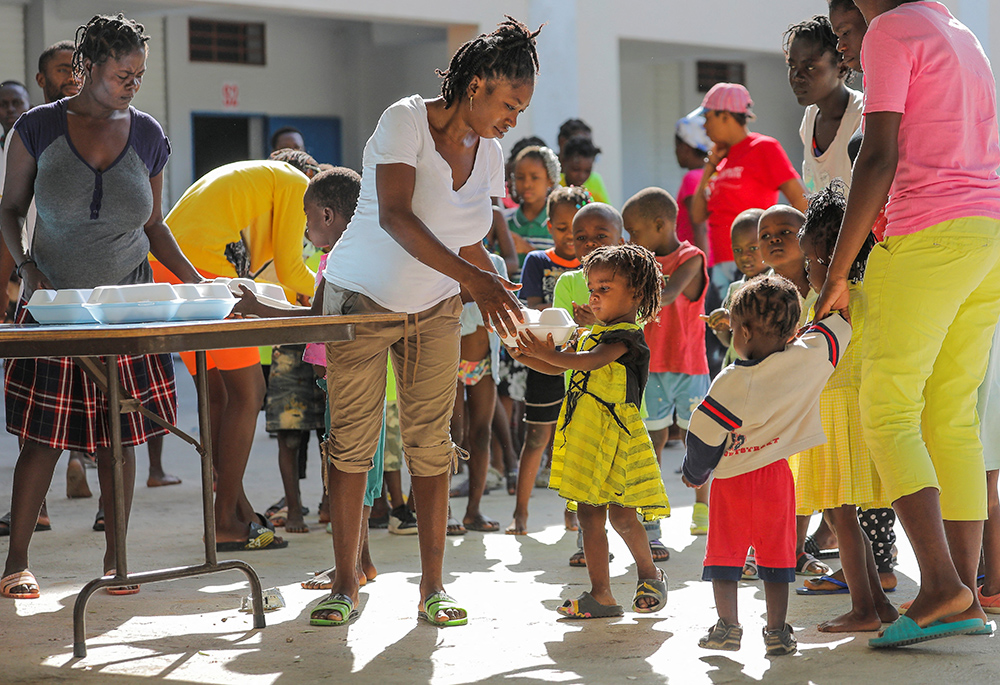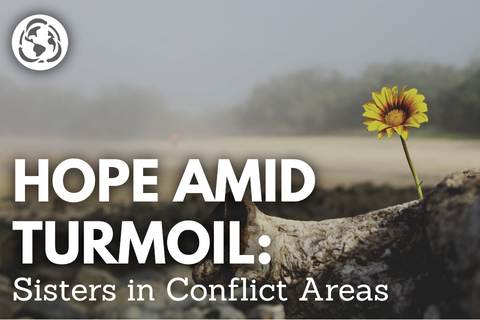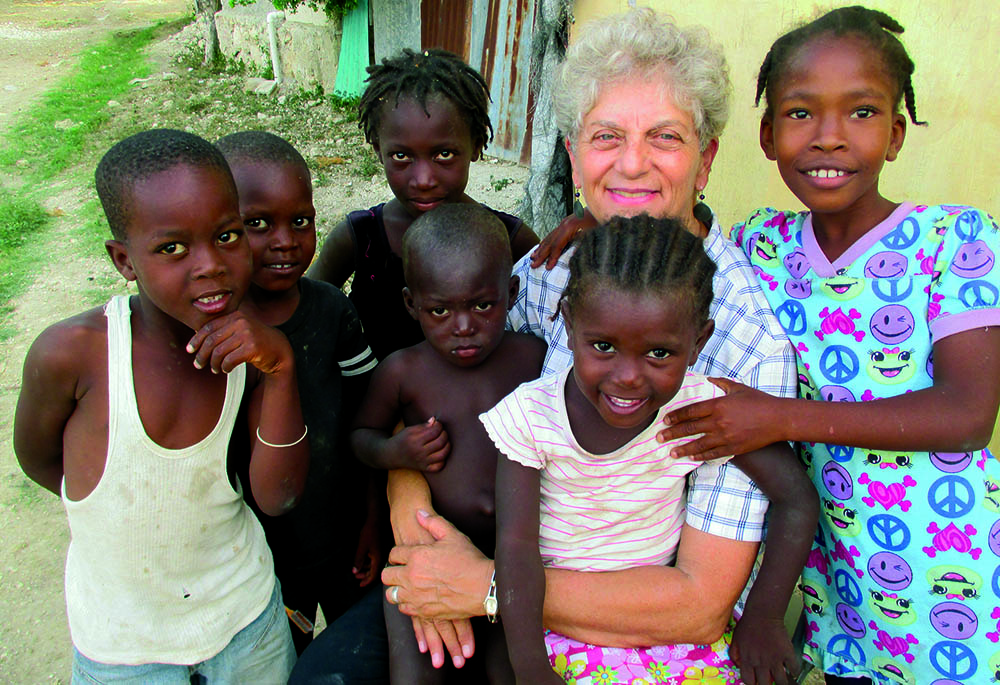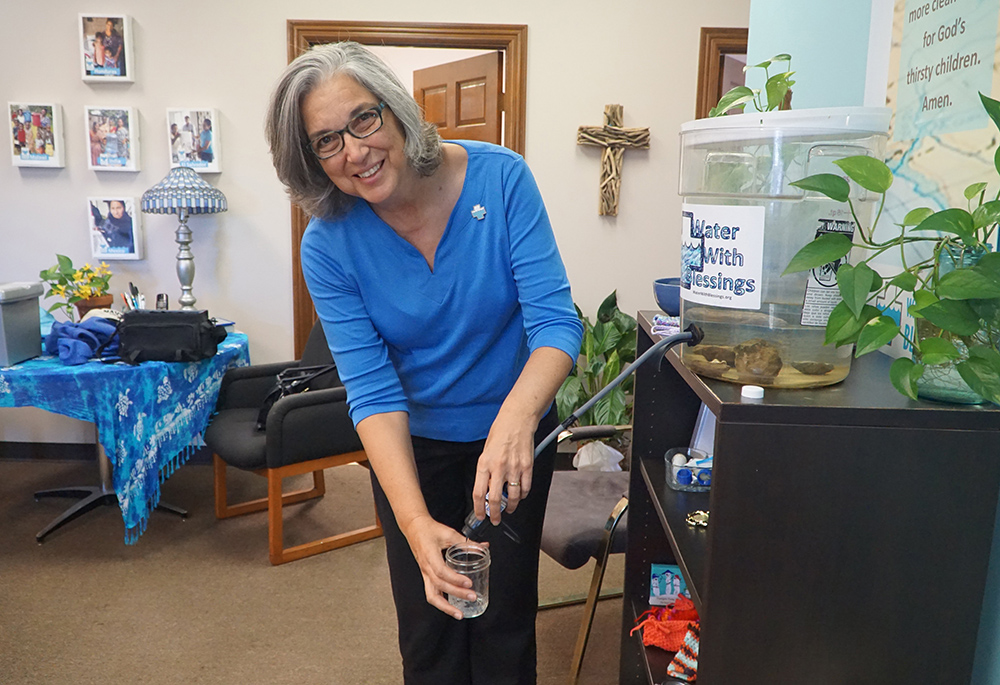
Haitian children who escaped violence in Cité Soleil line up to receive food at a school in Port-au-Prince July 22, 2022. An upsurge in gang-related violence has shut access to health services across some urban areas in Haiti, leaving one in 20 children living in Cité Soleil, a violence-ravaged commune, at risk of dying from severe acute malnutrition, UNICEF warned. (CNS/Reuters/Ralph Tedy Erol)
Church-based ministries and humanitarian programs in Haiti continue their work despite the considerable and daunting challenges.
Noting the ongoing needs caused by the lack of availability to food, Baltimore-based Catholic Relief Services told Global Sisters Report Aug. 3 in a statement that the organization and its local partners in Haiti "continue to focus on the lifesaving support to families who've been affected by the insecurity and violence, including providing cash so people can cover some of their needs, like food and other essentials."

Mindful of Haiti's hunger crisis and "how students can't learn on an empty stomach," Mercy Beyond Borders has initiated a hot meal program for 100 students in its high school scholars program, said Mercy Sr. Marilyn Lacey, the international nonprofit's founder and executive director.
The program is welcome and needed, she said, noting that "some of the scholars bring a spare plate so that they can split their portion to share with friends or family members who have even less."
Other ministries in Haiti have faced serious challenges, however.
A community-wide ministry by the Sisters of Charity of St. Elizabeth in Croix-des-Bouquets, which included a school, a water purification program, small business loans, a "pay it forward" goat project, medical clinic, emergency food and housing projects and two community gardens, all closed earlier this year because of the worsening security situation.
That included the kidnapping of two staff members, the shooting of another and the murder of one student — all due to gang violence.
"This was devastating for us and the people we served in Croix-des-Bouquets for over a decade," said Dawn Colapietro, a lay missionary and program coordinator for the New Jersey-based congregation.
"It was a difficult decision after 10 years to walk away from it," she said. "But we had absolutely no other choice."

Dawn Colapietro, a lay missionary with the Sisters of Charity of St. Elizabeth, at a school in Cuvier, just east of Haiti's capital of Port-au-Prince. (Courtesy of Dawn Colapietro)
Colapietro's colleague, a Haitian school administrator who did want to be identified because of security concerns, said the ministry is still committed to serving those in need "despite all of the adversities." But, he said, "we are dealing with situations that we have no control over."
The congregation, however, is heartened that it plans to open a school in another community in the Port-au-Prince metropolitan area with programs similar to those that ended in Croix-des-Bouquets. The new initiative will even include the addition of music and peace-initiative programs.
The congregation hopes that security will prevail and the ministry to assist those who need it will be able to thrive.
Advertisement
"We all need hope," Colapietro said. "Our mantra has become, 'We will help as many people as we can in as many places as we for as long as can until we cannot any longer.' "
A similar spirit animates the work of the water-focused humanitarian organization Water With Blessings. In an interview with GSR, Ursuline Sr. Larraine Lauter, the group's executive director, said 90,000 Haitian "Water Women" trained by Water With Blessings, have successfully defended their communities against cholera in an outbreak that began in September 2022, a claim she said is supported by government data.
The group's all-Haitian team and leadership have remained active in spite of civil unrest and insecurity each week empowering at least 525 new "Water Women" to filter safe, healthy water for 2,100 households in cholera-threatened communities, Lauter said.

Sr. Larraine Lauter, an Ursuline Sister of Mount St. Joseph, demonstrates the use of a Sawyer PointOne filter in the Water With Blessings office Sept. 12, 2019, in Middletown, Kentucky. (CNS/The Record/Ruby Thomas)
She added, though, that "donor fatigue" for Haiti has caused "program slowdown," and there have been many weeks in which Water With Blessings has been short of funds for its work.
Lauter said the news about kidnappings and other violence in Haiti cause outsiders to question whether it is worth supporting the work of the Kentucky-based ministry.
"We hear 'it's pointless to invest in that place' and "nothing changes in Haiti' from individuals and foundations alike," she said. "We pray every day for donors who will see our data-based proof for what it is: a corroboration of the heroic nature of Haitians who persist in the face of evil."








